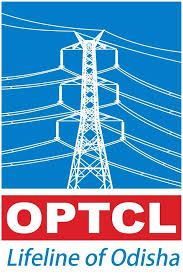Union Bank of India is for those with technical expertise and professional qualifications, public sector banks offer some of the most promising career opportunities. One such esteemed role is that of a Specialist Officer (SO) at Union Bank of India. This position is not only respected but also plays a critical part in strengthening the bank’s core departments — from IT to Risk Management, from Credit to Law.
If you’re aiming to step into this specialized role in 2025, here’s everything you need to know to prepare yourself effectively and confidently.
You can also read SBI Clerk
What Makes the Specialist Officer Role Unique?
Unlike generalist roles in banking, the position of a Specialist Officer is meant for professionals who bring focused knowledge to the table. These officers are assigned specific departments based on their academic background and work experience.
Roles often include:
- IT Officer
- Credit Officer
- Law Officer
- Risk Manager
- Treasury Officer
- Economist
- Security Officer
Each position has its own set of responsibilities. For instance, an IT Officer is expected to manage the bank’s technological framework, while a Risk Manager works to identify and mitigate financial and operational risks. These positions help modernize banking systems and ensure regulatory compliance and efficiency.
Are You Eligible for the Union Bank of India SO Position?
Before setting your sights on the exam, it’s crucial to understand whether you meet the criteria to apply.
Academic Qualifications
Your educational background plays a major role. Those with degrees in Engineering, IT, Computer Applications, Finance, Economics, Law, or Management may find themselves eligible for specific roles. For instance, IT roles typically require a B.E., B.Tech, or MCA, while positions in finance prefer candidates with an MBA (Finance), CA, or similar qualifications.
Age Limitations
Age limits vary based on the role and level. In general, the expected age range lies between the early twenties to the mid-thirties. There are standard relaxations for candidates from categories like SC, ST, OBC, ex-servicemen, and persons with disabilities, in line with government norms.
Work Experience
Most SO roles are not meant for complete freshers. Candidates are expected to have professional experience relevant to their domain — ranging from one year to several years depending on the level and nature of the job. Experience in banks, financial institutions, law firms, or IT firms is often considered valuable.
How Does the Selection Process of Union Bank of India Work?
To become an SO, you’ll need to go through a structured selection process. This ensures only the most skilled and suitable professionals make the cut.
The First Step: Online Examination
The initial stage is an objective test conducted online. This is designed to evaluate your general aptitude along with your subject knowledge. You’ll need to perform well across various areas such as reasoning, numerical ability, language skills, and professional knowledge.
The Second Step: Personal Interaction
If you perform well in the test, you’ll be shortlisted for the next round, which may involve a group discussion or a personal interview. This is where your communication skills, problem-solving approach, and depth of subject knowledge will be evaluated in real-time scenarios.
Final Decision
The final selection is made based on your cumulative performance in both stages. The scores are weighed, normalized if needed, and the final list of selected candidates is published accordingly.
Exam Structure: What You Can Expect
The test is not just about technical knowledge; it’s about overall competence. It typically includes the following components:
- Reasoning Ability – This section tests logical thinking, analytical skills, and pattern recognition.
- Quantitative Aptitude – You’ll face problems related to arithmetic, percentages, ratios, and data interpretation.
- English Language – This portion assesses grammar, vocabulary, reading comprehension, and writing structure.
- Professional Knowledge – This is the heart of the exam. It focuses on your specialization — whether it’s IT, law, finance, or any other field.
Each section is timed, and you must manage your pace carefully to attempt all parts confidently and correctly.
A Closer Look at the Syllabus
Let’s break down the focus areas you need to study.
- For Reasoning: Topics like seating arrangements, coding-decoding, blood relations, syllogisms, and input-output are essential.
- For Quantitative Aptitude: Concentrate on simplification, profit & loss, simple & compound interest, averages, number series, and time-speed-distance.
- For English: Reading newspapers daily can help, especially to improve comprehension, vocabulary, and error spotting.
- For Professional Knowledge: This varies. IT candidates should focus on networking, databases, programming, and cybersecurity. Law candidates must brush up on civil, criminal, and banking-related laws. Finance professionals should go deep into accounting principles, financial markets, and taxation.
Where to Stay Informed
To ensure you don’t miss any important announcements, regularly check the official website of Union Bank of India. All updates about the application window, test dates, and guidelines are released there.
Depending on unofficial sources or social media may result in missing deadlines or misinformation, so it’s best to rely only on the official source.
Books and Study Resources That Matter for Union Bank of India
Choosing the right books makes a significant difference in how well you prepare.
For the general sections like reasoning and aptitude, books by authors like R.S. Aggarwal, Arun Sharma, and S.P. Bakshi are highly recommended. For English, Wren & Martin along with daily editorials can sharpen your skills.
For domain-specific content, IT candidates can refer to books on computer fundamentals, networking, and security systems. Finance and law aspirants should consult their respective professional books, journals, and circulars published by RBI and SEBI.
There are also dedicated online platforms offering practice tests, video lectures, and mock exams tailored for this test — these can be a great supplement to your book-based preparation.
Conclusion
Getting selected as a Union Bank of India Specialist Officer at Union Bank of India is more than just clearing an exam — it’s about stepping into a vital role that supports the bank’s core operations and growth. The position is designed for individuals who are not only qualified but are also ready to take on specialized responsibilities in a fast-evolving financial ecosystem.



